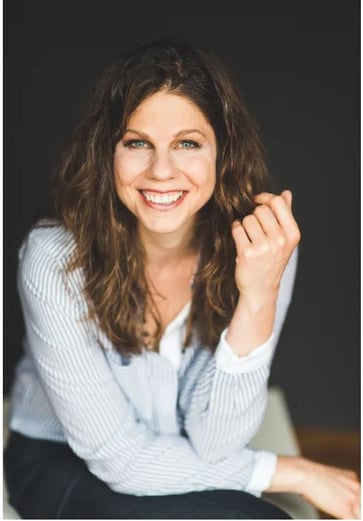Podcast Recap-Episode 7: The Power of Language & Rhetoric To Shape Corporate Sustainability

Helping Companies Achieve Sustainability Goals
In this month’s episode of the Sustainable Solutions with Planet Aid podcast, Pamela Batzel, founder and owner of Finch and the Frog joins podcast hosts Monica Johnson and Planet Aid Communications Manager, Haley Chitty in a conversation about the power of language and rhetoric in shaping corporate sustainability messaging. They also discuss the role of market research in achieving sustainability goals. Read on for the conversation highlights, or listen to the full podcast on platforms like Apple, Spotify, YouTube, or here on the Planet Aid website.
Pamela has an eleven-year background in journalism, and after going as far as she wanted to go in that field, she became interested in market research. The accomplished writer is journal-published and at the onset of her market research company, they dealt primarily with healthcare research. About four years ago, she decided to add sustainability to their spectrum of work. Finch and the Frog helps companies achieve their sustainability goals.
In the podcast, Pamela explained that there are many reasons why companies may seek out her services, from understanding their audience and potential audience to testing advertising messages and products. Finch and Frog specializes in qualitative and ethnographic market research, with a focus on the health of the earth and its beings.
Language Semiotics and Qualitative Market Research in Sustainability
So what does language have to do with sustainability outcomes for business? You might be surprised. One of the unique aspects of Finch and the Frog's market research is their focus on language semiotics—the study of signs and symbols as components of language.
Pamela explained that language is a powerful tool for understanding embedded meanings. "There's a lot in language that gets encoded or embedded," she said. "We do language semiotics or discourse analysis, linguistics—kind of in that realm of really looking at the language to understand embedded meanings."
Understanding Your Audience is Key to Achieving Sustainability Goals
Pamela also highlighted the importance of regenerative agriculture, food, water, and textiles in achieving sustainability goals. She stressed that these areas are interconnected and that it's important to take a holistic approach to sustainability. "It's not just about the earth, it's about the beings that are on the earth, including people," she remarked.
Pamela details another approach to understanding a company's audience by outlining some of the methods they use. She explained, “So there is software, like recollective software, and you have people do exercises online. So you might wanna get creative with people and have them draw a picture of what they think pollution looks like, or list all of the words that immediately come to mind for them if you say garbage or trash, draw a picture of sustainability, or share a story about something they did that they perceived as sustainable.”
Summarizing, the purpose of these exercises, she stated, “You get concepts of what they think 'sustainable' is, or concepts of how they think about recycling.”
Pamela emphasized that understanding your audience is key to achieving sustainability goals, saying "If you don't know what your audience thinks, feels, and believes, it's very difficult to have a program that's going to resonate with them."
Overall, Pamela's insights shed light on the important role that market research and understanding your audience can play in achieving sustainability goals. By taking a holistic approach and focusing on language semiotics, companies can better understand their audience and develop programs and products that resonate with them.
As we say on each episode of the podcast, "Change is not only possible, but essential, and it begins with understanding."
Watch the full episode of Sustainable Solutions with Planet Aid featuring Pamela Batzel, and stay tuned for our monthly podcast with other sustainable leaders.
You can make your own community more sustainable, Planet Aid offers solutions including:
Finding your closest yellow donation bin
Joining Planet Aid’s School Program
Click on one of the links above to start your sustainability journey.
